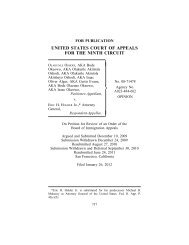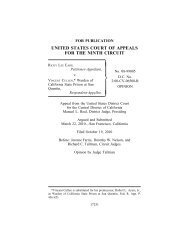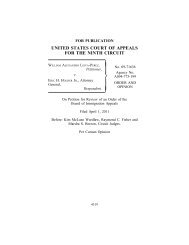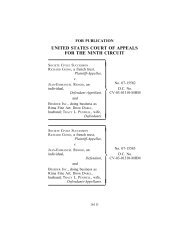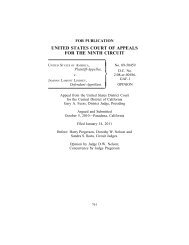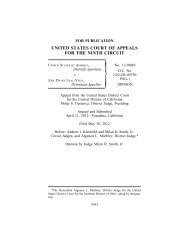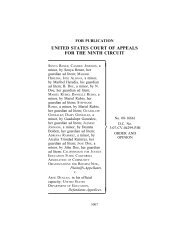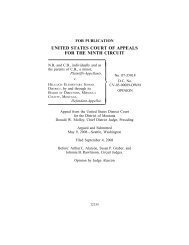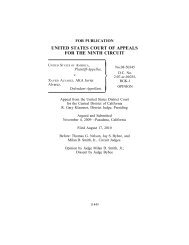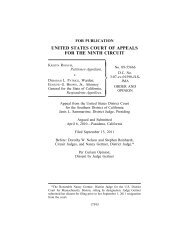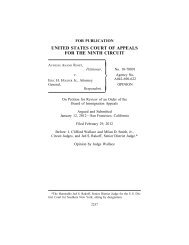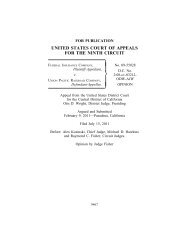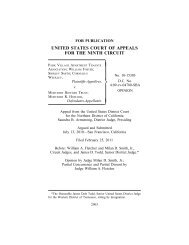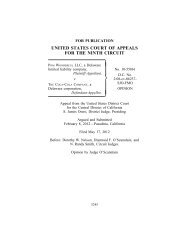UNITED STATES COURT OF APPEALS FOR THE NINTH CIRCUIT
UNITED STATES COURT OF APPEALS FOR THE NINTH CIRCUIT
UNITED STATES COURT OF APPEALS FOR THE NINTH CIRCUIT
You also want an ePaper? Increase the reach of your titles
YUMPU automatically turns print PDFs into web optimized ePapers that Google loves.
9754 PAYNE v. PENINSULA SCHOOL DISTRICT<br />
relief sought rather than the types of injuries alleged, we find<br />
no merit to the distinction we have previously drawn between<br />
physical and non-physical injuries. See Robb, 308 F.3d at<br />
1052. Although physical injuries might bolster a plaintiff’s<br />
likelihood of success in a case, there is no reason to treat constitutional<br />
violations that do not result in physical injuries differently<br />
under the exhaustion provision. See Blanchard, 420<br />
F.3d at 922 (holding that the IDEA does not require exhaustion<br />
when the plaintiff’s “emotional distress injuries . . . could<br />
not be remedied through the educational remedies available<br />
under the IDEA”).<br />
[8] We also hold that in cases where a plaintiff is seeking<br />
money damages, courts should not engage in the depth of<br />
speculation we conducted in Robb. In that case, we inferred<br />
that the Robbs sought money “[p]resumably at least in part to<br />
pay for services (such as counseling and tutoring) that will<br />
assist their daughter’s recovery of self-esteem and promote<br />
her progress in school. Damages could be measured by the<br />
cost of these services. Yet the school district may be able . . .<br />
to provide these services in kind under the IDEA.” Robb, 308<br />
F.3d at 1050. We no longer think that such speculation is<br />
appropriate. Although we agree with the proposition that “a<br />
plaintiff cannot avoid the IDEA’s exhaustion requirement<br />
merely by limiting a prayer for relief to money damages,” id.<br />
at 1049, we do not think, especially in the context of motions<br />
to dismiss or summary judgment motions, that it is proper for<br />
courts to assume that money damages will be directed toward<br />
forms of relief that would be available under the IDEA.<br />
[9] At the same time, plaintiffs cannot avoid exhaustion<br />
through artful pleading. If the measure of a plaintiff’s damages<br />
is the cost of counseling, tutoring, or private schooling<br />
— relief available under the IDEA — then the IDEA requires<br />
exhaustion. In such a case, the plaintiffs are seeking the same<br />
relief, even if they are willing to accept cash in lieu of services<br />
in kind. Accordingly, the exhaustion requirement would<br />
also apply in cases where a plaintiff is arguing that a state’s



